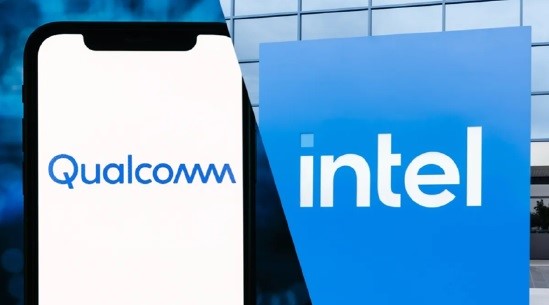Every potential deal between tech giants is enough to generate a lot of buzz and attention around the world. Recently, the rumors about Qualcomm's proposed acquisition of Intel have been like a bombshell, causing ripples on the calm lake of the chip industry. How credible is this acquisition that could change the landscape of the industry? China Exportsemi will conduct in-depth analysis from multiple dimensions such as sources, market reactions, transaction difficulties, the status quo and motivation of both parties, and historical cases, and strive to present readers with a more comprehensive analysis perspective.
1. Sources and official attitudes
Source: Initially, the news about Qualcomm's proposed acquisition of Intel was reported by authoritative media such as the Wall Street Journal, which added to the credibility of the news. However, follow-up reports, such as the United Kingdom Financial Times pointing out that the deal is far from certain and that Qualcomm has never "officially" expressed its intention to acquire, makes things less certain.
Official attitude: Neither Qualcomm nor Intel has responded positively to the acquisition rumors. Intel kept a low profile and did not comment, and Qualcomm did not respond clearly. This official silence adds to the uncertainty surrounding events.

Figure: Qualcomm plans to acquire Intel?
2. Market reaction and stock price fluctuations
Stock price volatility: Intel's stock price rose significantly following the acquisition rumors, reflecting the market's positive reaction to the acquisition rumors. However, stock price fluctuations are also affected by a variety of factors and cannot be relied upon solely as a basis for the credibility of an acquisition.
Market reaction: Industry insiders and investors have reacted enthusiastically to the acquisition rumors, but most have taken a cautious wait-and-see attitude. It is widely believed that while acquisitions may bring business complementarity and increased market share, obstacles such as transaction costs and antitrust scrutiny cannot be ignored.
3. Difficulties and obstacles in trading
Funding issues: Although Qualcomm's market capitalization is much larger than Intel's, the acquisition still requires a huge amount of capital, and Qualcomm has not disclosed the source of funds for the acquisition, which adds to the uncertainty of the transaction.
Antitrust review: The antitrust supervision of the semiconductor industry is extremely strict, Qualcomm and Intel have a wide global presence, and the transaction is likely to face strict scrutiny from the antitrust authorities of United States, Europe, Asia and other countries.
Difficulty in business integration: Qualcomm and Intel have great differences in business models and corporate cultures, and the difficulty of integration cannot be ignored. In addition, Qualcomm relies heavily on foundries such as TSMC and Samsung to produce chips, while Intel has its own production facilities, which also adds to the complexity of integration.
4. the current situation and motivation of the two sides
Intel's current situation: In recent years, Intel's performance has declined significantly, its stock price has plummeted, and it is facing huge financial pressure. However, Intel is still working on restructuring and reforming its business in response to market changes.
Qualcomm motivation: As a leader in the mobile phone chip market, Qualcomm has been seeking new growth points. The acquisition of Intel could help it expand into the PC and server processor market and strengthen its chip manufacturing capabilities. However, it is questionable whether this motivation will be enough to push Qualcomm to complete such a large-scale acquisition.
5. Historical Cases and References
Historically, mergers and acquisitions in the semiconductor industry have often been hampered by monopoly issues. For example, Broadcom's attempt to acquire Qualcomm was halted by the Trump administration over national security concerns; Nvidia's plan to acquire Arm has also been blocked by regulators in many countries due to antitrust concerns.
In summary, the credibility of Qualcomm's acquisition of Intel is still at a low level. While the acquisition rumors have sparked widespread attention and positive reaction in the market, the deal itself still faces many uncertainties and obstacles. Therefore, in the absence of more official confirmation and substantive progress, investors and industry players should remain cautious and wait and see.






